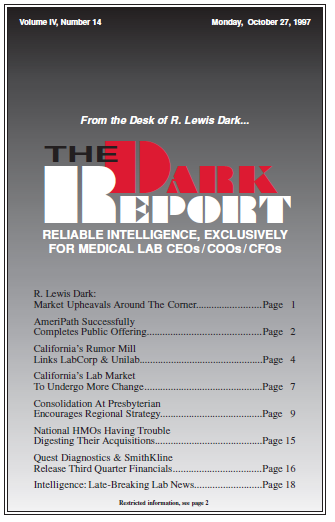CEO SUMMARY: Every laboratory in California continues to operate in a financially-punishing environment. Further shake-outs must occur as the economic forces unleashed by managed care take their toll on clinical laboratories. Expect radical changes to occur within the next 12 months. RUMORS OF A DEAL BETWEEN Laboratory Corporation of America and Unilab, Inc. have no …
California’s Lab Market To Undergo More Change Read More »
To access this post, you must purchase The Dark Report.


